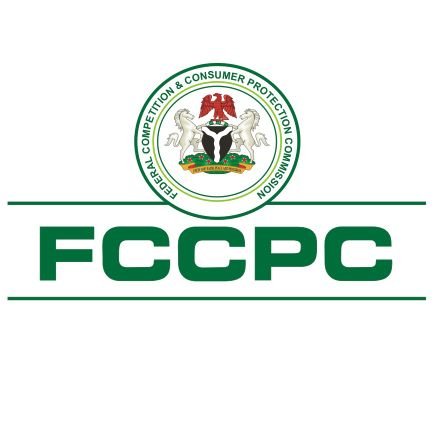
The Federal Competition and Consumer Protection Commission (FCCPC) has explained that it has no intention of subduing private businesses.
This comes after the Organised Private Sector (OPS) expressed dissatisfaction over FCCPC’s strategy to price control, warning that it reeks of market suppression and could harm investors’ confidence.
Members of the OPS on Sunday stated that the FCCPC was becoming a price control agency rather than furthering its core mandate of consumer protection following the commission’s recent one-month notice to retailers to crash prices of goods or face sanctions.
The members which include the Nigeria Association of Chambers of Commerce, Industry, Mines and Agriculture (NACCIMA), Nigeria Employers’ Consultative Association (NECA) and the Centre for the Promotion of Private Enterprise (CPPE) noted that the blame and solution for the escalating prices of goods and services in the Nigerian markets were at the doorstep of the federal government.
In a statement titled: “FCCPC Should Avoid a Price Control Mindset,” the Chief Executive Officer of CPPE, Dr. Muda Yusuf, disclosed that the disproportionate focus of the FCCPC on the retail segment of the economy and pricing issues underscores the assertion that the commission was transforming itself into a price control agency.
Mr. Yusuf said: “There is an emerging risk of market suppression and private enterprise repression by the FCCPC if the current trajectory continues.”
According to him, this would mark an elevation of regulatory risk in the Nigerian economy, which is detrimental to investors’ confidence.
He stressed amongst other things that the CPPE is concerned about the approach, methodology, targeting and the recent threats by the FCCPC to market leaders, traders and supermarket owners.
Reacting to the response of OPS on Tuesday, FCCPC lauded the feedback, saying “we value this dialogue and wish to clarify our position” – and cited Sections 17(l) (s),116 (2),124,125,138 and 155 of the Federal Competition and Consumer Protection Act (FCCPA) 2018.
“Price gouging is an unfair practice that takes advantage of crises or economic hardships to inflate prices arbitrarily, while price fixing occurs when competitors or market associations, without their own products, collude to set prices.
“At the FCCPC, our mandate is to safeguard consumers from unfair and deceptive practices and to ensure robust competition across all sectors. We categorically assert that prices in a competitive marketplace are determined solely by the forces of supply and demand. Price control is entirely outside the scope of our responsibilities.
“We have never considered, nor will we ever consider, intervening in the market to regulate prices. Any claims to the contrary are baseless and unfounded. Our recent directives are not about controlling prices but are focused on curbing exploitative practices and anti-competitive behaviours that distort the marketplace and harm consumers.
“We recognise the complexities of the current economic environment, including challenges such as foreign exchange fluctuations and fuel subsidy removal. These factors certainly impact pricing, but they do not excuse or justify exploitative practices that are anti-consumer. The Commission’s proposed actions in the retail sector are targeted and evidence-based, responding to specific instances where consumers are vulnerable to such exploitation,” the agency in a statement issued by its Director, Special Duties & Strategic Communication, Ondaje Ijagwu explained.
Ijagwu disclosed that discoveries made during the agency’s market surveillance and a recent disclosure by Abdul Samad Rabiu, Chairman of BUA Cement, underscores the critical need for their oversight.
“Mr. Rabiu revealed that despite BUA Cement’s effort to sell cement at a fair price of N3,500 per bag, their plan was undermined by dealers who inflated prices to as much as N7,000 to N8,000 per bag. This situation exemplifies the kind of exploitative conduct that the FCCPC is committed to addressing. Such practices make it difficult for ethical businesses to thrive.
“While promoting competition is essential for economic health, as evidenced in sectors like telecommunications, it is equally important to enforce laws against practices that undermine fair competition,” Ijagwu elucidated.
The FCCPC reiterated its commitment to a balanced approach that respects the dynamics of a free market while ensuring that consumers are protected from harmful practices.
The statement added: “We encourage all businesses to engage in ethical and lawful practices that contribute to a fair and competitive marketplace. The FCCPC does not seek to suppress private enterprise; our role is to ensure that the market operates on principles of fairness, transparency, and accountability. When businesses, as illustrated by the cement sector case, engage in practices that harm consumers, the FCCPC will take decisive action.
“We will continue to work collaboratively with all stakeholders; businesses, consumer groups, and other government agencies, to address both the immediate and remote causes of exploitative pricing. Our approach combines enforcement with cooperation, aiming to protect consumers and maintain a healthy competitive environment.
“We have granted a one-month moratorium before enforcement begins, providing businesses with the necessary time to adjust their practices and ensure full compliance with laws aimed at protecting consumers and fostering fair competition.
“The FCCPC stands firm in its commitment to enforcing the Federal Competition and Consumer Protection Act (FCCPA) 2018. We will continue to monitor the market place and take action against any business practices that violate the law. Consumers and businesses alike can trust that we will remain vigilant in upholding the principles of fair competition and consumer protection.”









One Comment